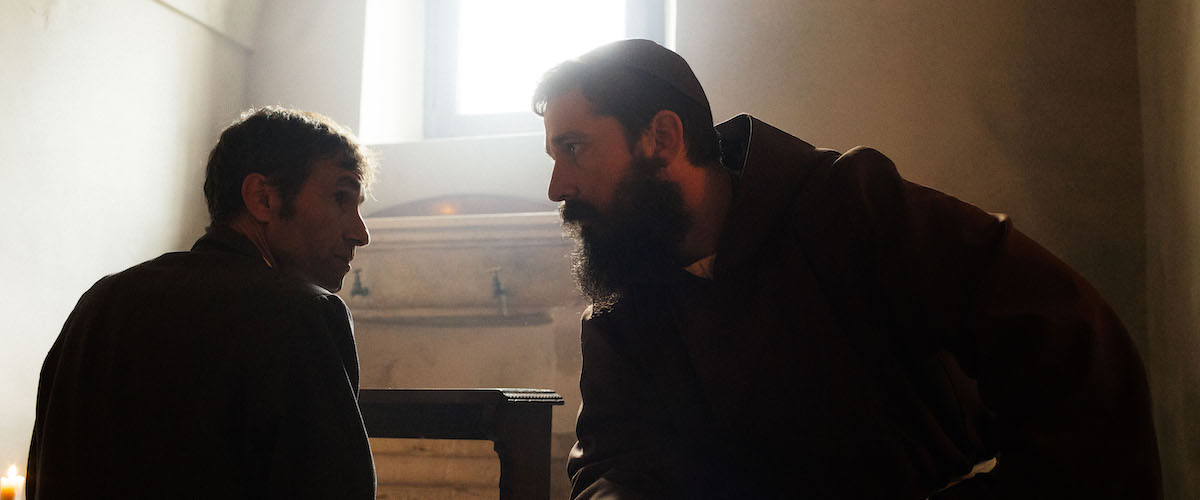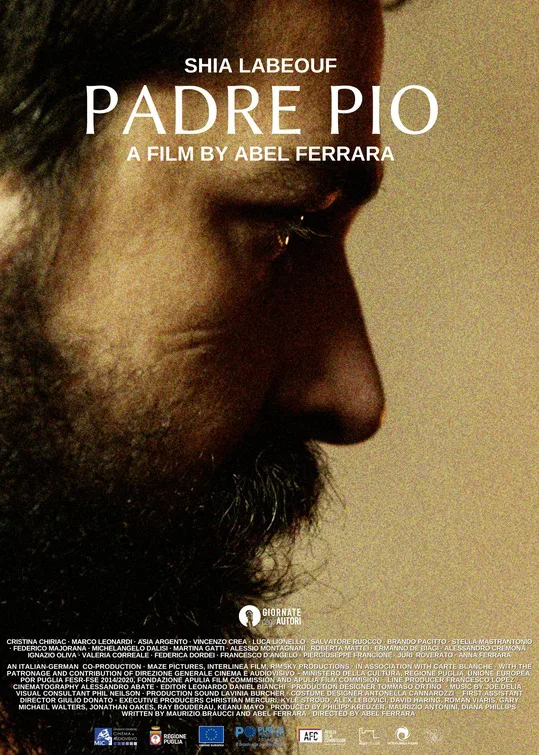Some of our best filmmakers have amplified career-long obsessions with faith into masterpieces like “First Reformed” and “Silence.” The prospect of the underrated genius of Abel Ferrara pondering the meaning of life through the story of Francesco Forgione, a world-famous Franciscan friar of the early twentieth century who showed signs of the stigmata, hums with potential. And so it’s dispiriting to report that “Padre Pio” is a dull slog, an oil-and-water hybrid of two different films, both with interesting ideas that never cohere into interesting filmmaking. And the real-life issues surrounding its star become so prevalent in the text that they overshadow any hope of disguising them. “Padre Pio” is a therapy session for star Shia LaBeouf, intercut with a story of labor strife in a traumatized Italian village. If that sounds weird, it is, but never in a way that’s consistently interesting.
Before the pitchforks are raised about separating the art from the artist, potential viewers should know that Ferrara and LaBeouf clearly don’t want you to do that. The star of “The Peanut Butter Falcon” made this film about a year after allegations by ex-girlfriends FKA Twigs and Karolyn Pho regarding his abuse, which led to charges that will resurface in a trial scheduled for later this year. After disappearing from the public eye for a year after the story broke in December 2020, LaBeouf chose this tale of redemption to make his return, and reportedly converted to Catholicism in the process. When he is debating issues of faith with a demon in an early scene and the being accuses him of having his “narcissistic way” with “countless women,” it is quite clearly a moment where the line between character and performer is supposed to blur. We are not supposed to leave what we know of LaBeouf at the door. It is designed to inform the production.
Given Ferrara’s general disinterest in making a traditional biopic, it might sound captivating to watch a tortured actor question his own behavior within that construct. But “Padre Pio” never clicks, and comes off more self-obsessed than revelatory. And given the revelations about the last time Shia attempted on-screen therapy in “Honey Boy”—most of it was untrue—one has to question the veracity of any of this experiment, making it a grotesque show of public redemption instead of a truthful one.
Only one scene stands out as a memorable oddity within Ferrara’s career. Asia Argento, playing “Tall Man,” comes to the Father and confesses he has incestuous feelings toward his daughter. Padre Pio lashes out at the man, accusing him of failing to really consider his demonic thoughts. Is it a commentary on LaBeouf’s own lack of contrition? When he yells at the man to shut up, is he talking to himself? The casting, the text, the multiple readings—it’s a moment when “Padre Pio” is just odd enough to be intriguing, but it doesn’t last before the film plods back to its other half.
Intercut between scenes of Shia’s self-flagellation is a story of a village traumatized by World War I that’s contending with the upcoming first free election in Italy. It leads to endless debates over worker’s rights and socialism that feel oddly hollow, in part because Ferrara inexplicably directs an Italian cast to speak in English for no discernable reason, especially when LaBeouf doesn’t even try to put on an accent himself. It comes off clunky, like an odd piece of Italian community theater about a chapter of the country’s history that no one involved seems particularly interested in telling.
It’s as if there are two movies in “Padre Pio.” In one, a filmmaker and actor experiment with fiction, history, religion, and therapy. Or the same filmmaker could have told a story about a changing time in a country he loves, revealing how the scars of war shaped the course of its future. Either might have worked individually. Crammed together in a movie that seems intrinsically uninterested in connecting them leads to another late-career misfire for one of the most compelling directors of the ‘80s and ‘90s. We’ll have to wait for his faith-driven masterpiece.
Now playing in theaters.




















